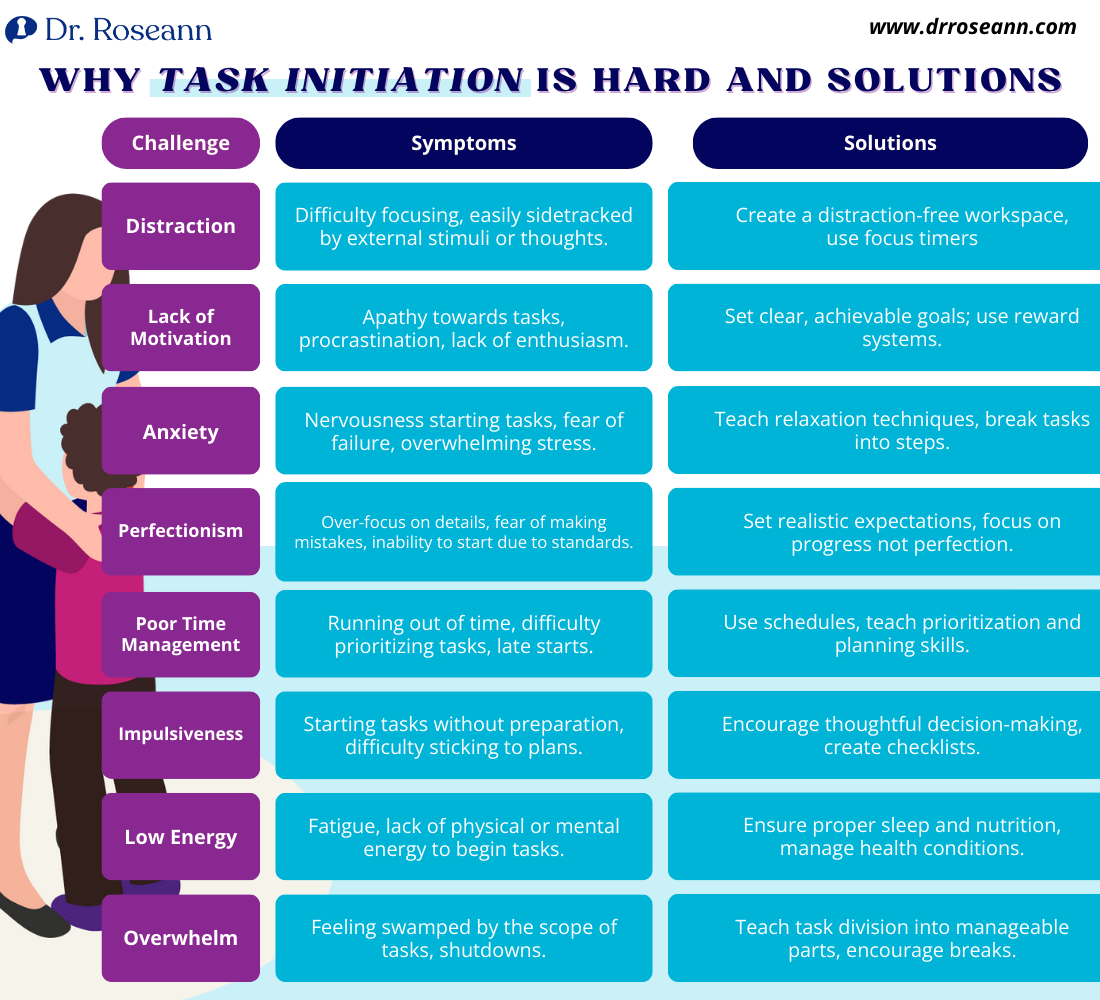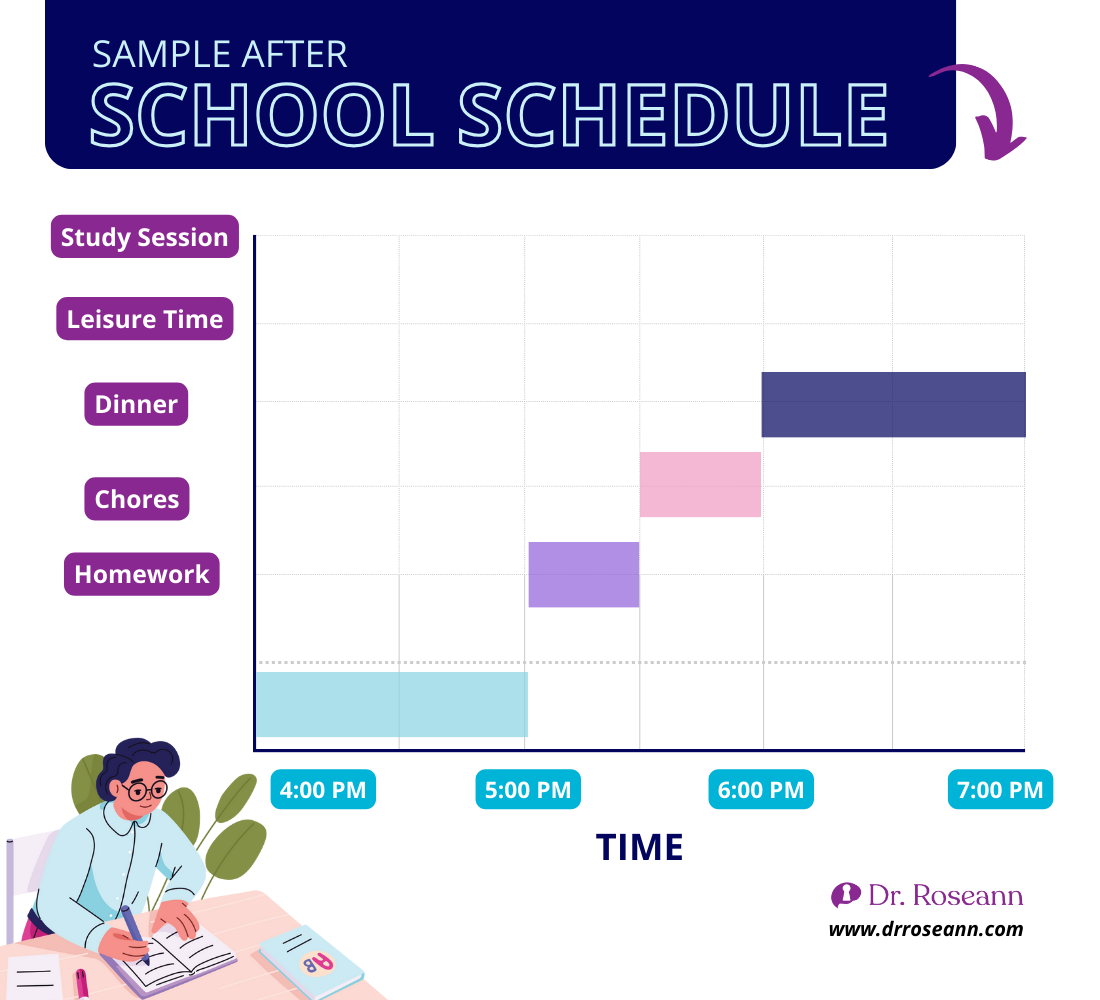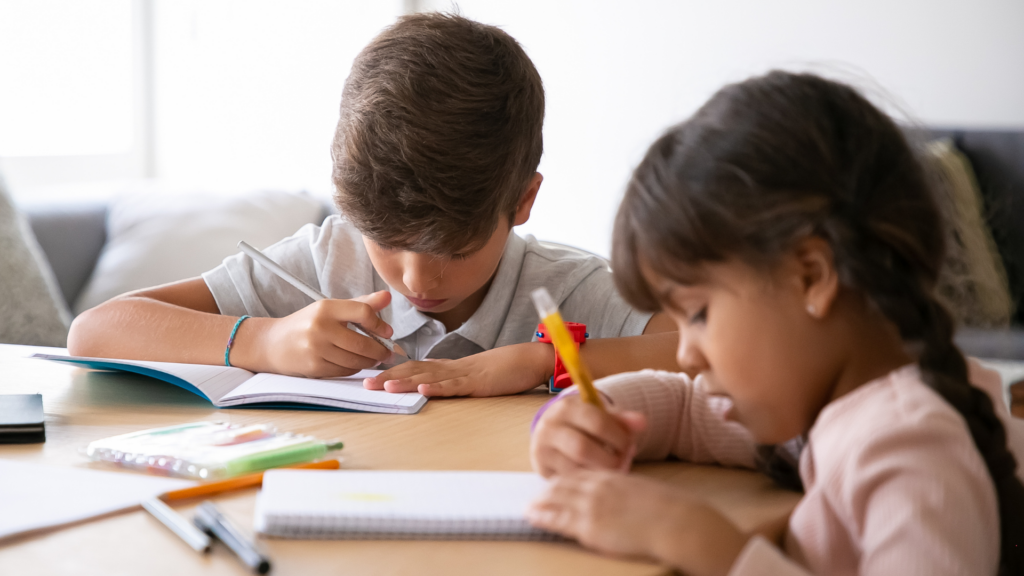Task initiation is the cornerstone of productivity, yet many children, especially those with conditions like ADHD, anxiety, OCD, and depression, struggle with this fundamental skill. They need help starting homework, chores, or extracurricular activities.
Complex initiation tasks can significantly impact a child's academic performance, social interactions, and overall well-being. Task initiation is defined as the cognitive ability to begin activities or assignments without undue delay or procrastination. It covers the capacity to set goals, plan effectively, organize resources, and take steps to initiate action toward completing tasks or achieving objectives.
What is Task Initiation?
Task initiation is more than just a simple action. It's a fundamental cognitive process that sets the stage for productivity and success in various aspects of life. At its core, task initiation refers to the capacity to initiate an activity or assignment promptly and efficiently without succumbing to procrastination or unnecessary delay.
This ability lies at the heart of executive functioning, a complex set of cognitive skills that enable children to navigate the demands of daily life with efficiency and precision. Executive functioning encompasses a range of mental processes, including attentional control, working memory, cognitive flexibility, and inhibitory control.
Within this framework, task initiation plays a pivotal role in orchestrating these functions harmoniously to achieve desired goals and outcomes. It involves the physical act of starting a task and the cognitive processes preceding and accompanying it.
When I work with children or teens with good task initiation (yes, they exist), they develop those skills through independent play and learning over time.
Why Do Students Need Help Getting Started?
Students with ADHD may struggle with task initiation due to many underlying factors that impede their ability to initiate action effectively. Among these factors, executive functioning deficits stand out as a prominent challenge, particularly for students with conditions such as ADHD.
Children with ADHD often struggle with core executive functions, including planning, organization, and time management. These cognitive processes are crucial in task initiation, enabling individuals to set goals, prioritize activities, and allocate resources efficiently. However, ADHD-related impairments in executive functioning can disrupt these processes, making it difficult for students to initiate tasks in a timely and organized manner.

Why is it Hard for My Child to Start Tasks?
Children with ADHD often experience challenges in regulating their attention and impulses, making it difficult to focus on initiating tasks amidst distractions. Task initiation anxiety can amplify these struggles, causing them to feel overwhelmed by the demands of the task. Similarly, those with OCD may get caught in rituals or obsessions that delay task initiation, while depression can drain their energy and motivation.
Moreover, anxiety and perfectionism can exacerbate the difficulties students face in getting started. The fear of failure or making mistakes can paralyze them, leading to avoidance behaviors and procrastination. Students may become overwhelmed by the perceived magnitude of the task or worry about failing to meet their own or others' expectations, hindering their ability to take the initial step.
Furthermore, lacking motivation or interest in the task can significantly diminish students' willingness to begin. Students may need help to muster the enthusiasm needed to initiate action, whether due to boredom, disengagement, or competing priorities. With a sense of purpose or intrinsic motivation, starting a task may feel manageable and appealing.
Task Initiating Activities Examples:
- Starting homework assignments promptly after school
- Initiating chores without reminders or procrastination
- Beginning a creative project or hobby with enthusiasm
- Joining group activities or sports without hesitation
- Commencing a research paper
- Launching a business venture
- Starting a fitness routine
- Embarking on a home improvement project
- Launching a volunteer initiative
- Starting a new hobby or interest
- Beginning a budgeting or financial planning process
- Initiating meal preparation
What are Task Initiation Strategies that Can Help My Child?
Empowering your child to master task initiation requires patience, understanding, and tailored support. One study looks at how people decide when to start their tasks and finds that when they think the deadline is similar to what they're doing now, they're more likely to start right away, which could help them do better on their work (Tu & Soman, 2014).
Knowing this would allow parents to help their children better in time management and task prioritization, ultimately leading to improved productivity. Here are more strategies on how to foster their task initiation skills:
1. Create a Structured Routine
Establish a predictable daily schedule with designated times for homework, chores, and leisure activities. Consistency provides a framework that reduces decision-making stress and encourages task initiation.

2. Break Tasks into Manageable Steps
Teach your child to break daunting tasks into smaller, actionable steps. This approach makes a difficult task more achievable and helps them focus on initiating one step at a time. Children can initiate activities better by employing this strategy.
3. Provide Clear Instructions and Expectations
Communicate expectations for tasks, including when they need to start and complete them. Visual aids or checklists can reinforce instructions and serve as reminders. This step can address a lot of ADHD task initiation issues.
4. Use Technology for Better Task Initiation
One study looked at how a digitized video schedule could help people with autism transition between tasks. They trained two adults with autism and their instructors to use this digital schedule, which showed short videos of tasks they needed to do.
The study found that the effects of using the video schedule varied for each person – one person got faster at switching tasks, but the other didn't change much. This shows that using technology like this could help some people with autism in their daily routines (Redinius, 2003).
5. Minimize Distractions
Create a conducive environment for task initiation by reducing distractions such as electronic devices, clutter, or noisy surroundings. Designate a quiet, organized workspace where they can focus on starting tasks.
6. Encourage Self-Talk and Positive Reinforcement
Teach your child to use positive self-talk to overcome procrastination and self-doubt. Encourage them to acknowledge their efforts and progress, fostering a growth mindset towards task initiation.
What You Can Do To Help Your Child
Task initiation is a foundational skill that underpins academic achievement, personal growth, and overall well-being. For children facing challenges with task initiation, understanding the underlying factors and implementing targeted strategies can make a significant difference in their ability to start tasks effectively.
Parents can nurture their initiation skills with patience, support, and encouragement to empower their children to thrive in managing their responsibilities and pursuing their goals. Let's work together to cultivate a culture of productivity and resilience, one task initiation at a time.
If you're a parent or caregiver supporting a child who struggles to initiate tasks, remember you're not alone. Contact mental health professionals, educators, or support groups for additional guidance and resources tailored to your child's needs.
Together, we can empower our children to conquer challenges and embrace their journey toward mastery of productivity. Download a Parent Kit today to unlock your child’s behavior, attention, and learning with science-backed solutions!
What are task initiation strategies for adults?
Task initiation strategies for adults include breaking tasks into smaller, manageable steps, setting specific goals and deadlines, minimizing distractions, using visual cues or reminders, and implementing routines or schedules to establish consistency and structure in task initiation. Additionally, practicing mindfulness techniques and employing self-reward systems can help boost motivation and reinforce positive behaviors related to task initiation.
What are task initiation executive function skills?
Task initiation executive function skills encompass initiating and beginning tasks effectively. These skills involve setting goals, planning, prioritizing activities, overcoming procrastination, and breaking tasks into manageable steps. Additionally, task initiation executive function skills involve regulating impulses, maintaining focus amidst distractions, and persevering through challenges to initiate action in a timely and efficient manner.
How do experts define initiation of tasks in children?
Seamless task initiation means independently starting and engaging in activities or assignments without excessive delay or prompting from others. It encompasses the skills of planning, organizing, and initiating action toward completing a task or achieving a goal. In children, initiation of tasks is a critical aspect of executive functioning development and is essential for academic success, social interaction, and overall adaptive functioning.
What are task initiation IEP goals?
Task initiation Individualized Education Program (IEP) goals are specific objectives designed to address a student's challenges in initiating tasks effectively. These goals are tailored to the student's needs and typically focus on improving their ability to start activities or assignments independently and promptly. Examples of task initiation IEP goals may include:
What are some ideas for initiation sentence starters to motivate yourself?
Initiation sentences serve as motivational cues to kickstart action and overcome inertia. They affirm belief in one's abilities, emphasize the importance of taking the first step, and foster a positive mindset conducive to progress and achievement. Some ideas for initiation sentence starters to motivate yourself include: “Today, I will…”, “I am ready to…”, “It's time to…”
Which part of task initiation ADHD impacts?
When ADHD impacts the executive functioning aspect of task initiation, it hinders the individual's ability to plan, organize, prioritize, and initiate tasks effectively. ADHD and task initiation are closely intertwined, with individuals often experiencing difficulties initiating tasks due to executive functioning challenges, including attention, impulse control, and organization.
Which is an example of a pre-initiation task?
An example of a pre-initiation task could be gathering necessary materials or resources before starting an activity or assignment. If a child has difficulty completing a task at hand meaning they struggle to finish or accomplish the current activity, it may indicate challenges in sustaining attention, managing time effectively, or overcoming obstacles that impede progress toward task completion.
Citations
Redinius, P. L. (2003, July). The Effect Of A Digitized Video Schedule On Task Initiation For People With Autism. ProQuest. https://www.proquest.com/openview/a72ff554752cedaf3eecd776a99f7635/1
Tu, Y., & Soman, D. (2014). The Categorization of Time and Its Impact on Task Initiation. Journal of Consumer Research, 41(3), 810–822. https://doi.org/10.1086/677840
Dr. Roseann is a mental health expert in ADHD who is frequently in the media:
- Helping Children Thrive Podcast Benefits of Neurofeedback for Children with ADHD
- Seeme & Liz 12 Essential Parenting Tips For Kids with ADHD
- Evan H. Hirsch, MD – EnergyMD with Dr. Roseann Capanna-Hodge (Video) Topic: Is it Brain Fog or ADHD?
Always remember… “Calm Brain, Happy Family™”
Disclaimer: This article is not intended to give health advice and it is recommended to consult with a physician before beginning any new wellness regime. *The effectiveness of diagnosis and treatment vary by patient and condition. Dr. Roseann Capanna-Hodge, LLC does not guarantee certain results.
Are you looking for SOLUTIONS for your struggling child or teen?
Dr. Roseann and her team are all about science-backed solutions, so you are in the right place!
Is it ADHD or something else?
Take the ADHD Quiz to find out why your kid can’t focus, listen, or complete tasks
Dr. Roseann is a Children’s Mental Health Expert and Licensed Therapist who has been featured in/on hundreds of media outlets including The Mel Robbins Show, CBS, NBC, PIX11 NYC, Today, FORBES, CNN, The New York Times, The Washington Post, Business Insider, Women’s Day, Healthline, CNET, Parade Magazine and PARENTS. FORBES called her, “A thought leader in children’s mental health.”

She coined the terms, “Re-entry panic syndrome” and “eco-anxiety” and is a frequent contributor to media on mental health.
Dr. Roseann Capanna-Hodge has three decades of experience in working with children, teens and their families with attention-deficit hyperactivity disorder (ADHD), autism, concussion, dyslexia and learning disability, anxiety, Obsessive Compulsive Disorder (OCD), depression and mood disorder, Lyme Disease, and PANS/PANDAS using science-backed natural mental health solutions such as supplements, magnesium, nutrition, QEEG Brain maps, neurofeedback, PEMF, psychotherapy and other non-medication approaches.
She is the author of three bestselling books, It’s Gonna Be OK!: Proven Ways to Improve Your Child's Mental Health, The Teletherapy Toolkit, and Brain Under Attack. Dr. Roseann is known for offering a message of hope through science-endorsed methods that promote a calm brain.
Her trademarked BrainBehaviorResetⓇ Program and It’s Gonna be OK!Ⓡ Podcast has been a cornerstone for thousands of parents facing mental health, behavioral or neurodevelopmental challenges.
She is the founder and director of The Global Institute of Children’s Mental Health, Neurotastic™Brain Formulas and Dr. Roseann Capanna-Hodge, LLC. Dr. Roseann is a Board Certified Neurofeedback (BCN) Practitioner, a Board Member of the Northeast Region Biofeedback Society (NRBS), Certified Integrative Mental Health Professional (CIMHP) and an Amen Clinic Certified Brain Health Coach. She is also a member of The International Lyme Disease and Associated Disease Society (ILADS), The American Psychological Association (APA), Anxiety and Depression Association of America (ADAA) National Association of School Psychologists (NASP), International OCD Foundation (IOCDF).
© Roseann-Capanna-Hodge, LLC 2024










